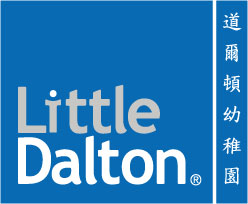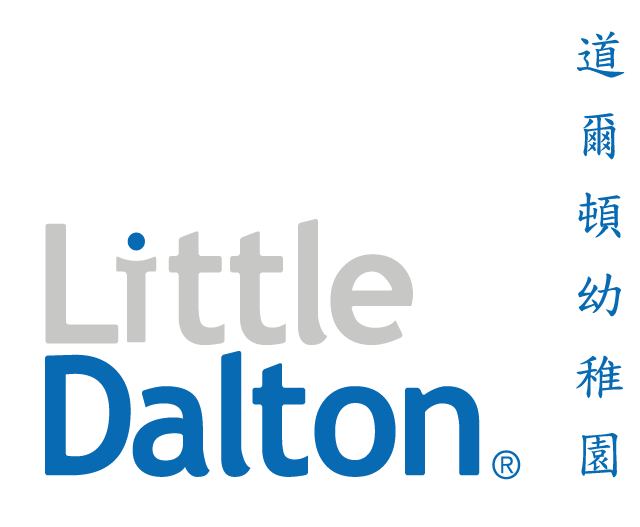Frequently Asked Question
To provide the education that we feel is best for our children, and for other nurturing parents who share the same beliefs.
The key structures of the Dalton Plan, especially the written Assignment and formal Lab, are most effective for children aged 8 and older. However, the spirit of Dalton which emphasises child-led learning and development of independence can be implemented at any age. Little Dalton emphasises the spirit of Dalton, with learning tailored to each child’s interests, talent and needs where necessary. Teachers focus on stimulating intrinsic motivation rather than pushing knowledge and skills. Highly simplified versions of House, Assignment and Lab are introduced gradually and systematically to familiarise children with the structures of the Dalton Plan. Emphasis is on House as a supportive community and guiding force and on Lab as a time for one-to-one or small group learning. True Assignment and Lab will be introduced in the primary school years when children reach the required levels of maturity.
The Dalton Plan is, in fact, a very structured environment. However, unlike traditional schools, it is structured to nurture intrinsic motivation for learning rather than placing the emphasis on teacher-led rote learning. The Dalton Plan balances structure with the freedom for students to follow their curiosity and think creatively.
The school’s founders are committed to providing the highest quality bilingual, child-led education. We believe in the Dalton Plan philosophy and that it can be adapted to provide an effective organisation structure. However, there is no need to “stick” to the Dalton Plan. Dalton is a philosophy and educational structure that, as its original author Helen Parkhurst wrote, is not “iron clad” and should be adapted as needed. Little Dalton’s implementation of the Dalton Plan takes into consideration local characteristics and the diversity of our school community, the age of the students and the learning needs of individual students.
The Dalton Plan is an organisational structure and approach to teaching and learning which can support various curricula, including the US curriculum, Australian curriculum, English curriculum, etc… There are Dalton schools throughout the world that follow a wide range of curricula, both local and international. The IB is one such international curriculum.
Montessori and Dalton were conceived as educational philosophies at much the same time, in the early 20th century. Indeed, the author of the Dalton Plan, Helen Parkhurst, worked alongside Maria Montessori for several years. Both philosophies have made critical contributions to the field of progressive education and have important similarities and differences.
It is not possible to do a detailed comparison of these two approaches in this format. For parents who are interested in comparing the two philosophies, we recommend the books Absorbent Minds by Maria Montessori and Education on the Dalton Plan by Helen Parkhurst.
We aim for no more than 20 students in our Pre-K to K3 classes, with most classes having fewer than 20 students. Each class is led by two teachers with the support of a teaching assistant. For our Playgroup classes, we have a maximum of 8 students (with an accompanying adult) in each class, with two teachers. So, on average our teacher to student ratio is 1:8 to 1:10.
The Dalton Plan provides for significant one-on-one and small group learning time when the actual ratio would be as high as 1:1. On the other hand, socialisation and the development of a sense of community is an important part of our philosophy, so students may be in larger groups for various activities such as community visits and excursions. We also have specialist teachers to lead certain classes with the assistance of the House teachers, so in those cases our teacher to student ratio is significantly higher.
We provide a dual environment with native English and Putonghua teachers and teaching assistants. Students are immersed in both languages in their daily activities. The aim of the immersion approach to language learning is that students develop the capacity to use both languages to learn rather than only learning the languages as separate subjects. We do not put a strict ratio on language exposure as it will be different for each child depending on their home language environment, skills and interests. Children needing help in one of the two languages will be given additional support in that language during Lab time. We also provide Chinese Immersion classes for students who require more exposure to Putonghua, and plan to provide English Immersion classes for those students who would benefit. We are committed to provide a balanced dual environment and a high quality programme in both languages.
We believe immersion is the most effective way to teach languages to kindergarten age children. However, at K2 and K3 levels, phonics may be taught to selective children as a supplement if the teachers feel this additional support is beneficial.
Our focus is traditional Chinese. This is for three reasons. First, traditional Chinese is the root of the Chinese language with much beauty and wisdom behind the construction of the characters. Second, people who know traditional Chinese can learn to read and write simplified Chinese with relative ease if they choose to do so at a later age. Third, it allows for easier transition to other schools in Hong Kong.
Yes, our K3 graduates are fluent in pinyin. Our expert consultant from China advised us that children entering Grade 1 in China are expected to be fluent in pinyin.
Children are given one-on-one or one-on-few support during Lab time. Flashcards for both languages are provided as part of our curriculum. As the school grows we plan to provide more support for families who are not bilingual in a variety of media. We currently have a Chinese Immersion Class and plan to offer an English Immersion Class as well if required. We must emphasise that when home does not have a bilingual language environment, parents need to be committed to work with the school in order for the children to acquire fluency. Home and school must work in partnership.
Like any organisation we attract and retain talent by having a vision that they embrace, a structure and philosophy that enable job satisfaction, sufficient professional development and career advancement opportunities, as well as a competitive remuneration package. At Little Dalton, we see teachers as our most valuable asset. They are respected and supported. Students cannot learn in a happy, focused environment if teachers are unhappy, unqualified or unmotivated.
Unlike stand-alone curricula, such as the IB, or approaches to teaching and learning such as Montessori, Dalton’s flexibility means that there are no formal professional achievement requirements. As Little Dalton emphasises the spirit of Dalton and its focus on child-led, personalised schooling alongside bilingual immersion, hard Dalton skills and experience are not key to recruitment for our teaching team in the kindergarten stage. Instead, we consider a passion for progressive learning, a mind open to innovation, an empathetic and caring heart, native language skills and early childhood teaching experience to be the critical qualities we look for in our applicants.
Our Dalton training is tailored to our unique characteristics, location and population and aligned to the EYFS syllabus and our Chinese curriculum. Little Dalton has ongoing advice and teacher professional development from Dr Selina Samuels and other Dalton experts that allow us to maintain a continual focus on our professional Dalton practice and to keep it fresh and responsive to the needs of our students.
There are no formal requirements of the students. We appreciate committed parents who share our beliefs and are willing to participate actively in their child’s learning. We believe that all children have talents and it is our job to help them fulfil their potential by identifying their interests and needs.
There is no school that suits every child. However, our aim is to personalise and differentiate the curriculum for individual students rather than ensure that our students fit our requirements. In the older years, learning through the Dalton Plan requires a high degree of focus and responsibility so that students learn skills in time management, organisation and meeting deadlines. Some students need extra help to develop these skills. We would not regard these students, however, as not fitting the Plan. It is our role to help students to acquire the skills so that they can take responsibility for their learning, develop confidence and self-discipline and contribute valuably to the community. Dalton schools make provision for students who need additional encouragement and support. We do not expect this to be a problem for kindergarten children.
Little Dalton is committed to providing our students with a world class, well-rounded education. Little Dalton graduates are inquisitive, confident, self-disciplined, responsible and independent little learners and thinkers. They are well equipped for a transition to the primary years at any school around the world. The plan is for a Dalton Plan primary school to open in Hong Kong in 2017 and a high school in due course.
Globally, there are about 200 Dalton schools. This is not a large number as adopting the Dalton Plan is more expensive than a traditionally organised school, partly because Dalton benefits from a low student/teacher ratio. Progressive teaching also requires highly passionate, enthusiastic and innovative teachers, who are not easy to find.
We work closely with experts from leading Dalton schools around the world. We are in discussion in key areas of teacher exchange, curriculum development and opportunities for professional development and sharing best practice.
Little Dalton is not a school where we drill children with lots of homework, tests and so on. However, one of the key elements of the Dalton Plan is the assignment. Assignments are specially designed to motivate children by giving them responsibility for their own learning. In kindergarten, assignments are mostly cognitive development activities that combine learning with fun.
The assignment is effectively a learning contract between student and teacher, defining the work that a student is required to finish within an agreed time frame. A Dalton assignment is uniquely structured and designed to:
- explain to students the big picture and purpose of the work;
- be interdisciplinary wherever possible to allow children to see knowledge as interconnected instead of isolated;
- provide sufficient support in terms of guiding questions, research suggestions and well-defined milestones and deadlines;
- allow tailoring to individual interests, strengths and learning needs; and
- promote the internalisation and refinement of time-management and organisational skills.
Most of the assignment is completed at school during Lab time, with guidance from teachers and, in some cases, in collaboration with other children. However, some of the assignment may be completed at home, dependent on the nature of the particular assignment (e.g. collecting recycled materials from home) or because the child did not have enough time to complete the assignment at school.
The concept of the assignment is introduced at Little Dalton in K1, increases in centrality in primary school and will become the focus of work in high school. We do not expect the assignment to be time consuming at all at kindergarten. We believe that for young children, lots of play, fun reading, family time, exercise and plenty of sleep after school are more critical for their cognitive development than an overload of homework.

The Dalton Plan
The Dalton Plan is based on an educational pioneer, Helen Parkhurst’s strong belief that whenever children are given responsibility for their learning, they instinctively seek the best way of achieving it and execute their decisions with focus and diligence, leading to success.

Journey
Little Dalton is a private independent kindergarten with a diverse student body which provides child-centered education for families in Hong Kong.

About
Little Dalton is a progressive, Dual Language Kindergarten guided by The Dalton Plan. Our curriculum is specially designed and delivered by experts to combine diligence and creativity.

Admissions
If you have any questions
on admissions,
please email us at
E: admissions@ldk.edu.hk
(West Kowloon Campus)

Contact
WEST KOWLOON CAMPUS
Unit B, G/F, Imperial Cullinan
10 Hoi Fai Road, Kowloon
T: +852 3612 5760
E: info@ldk.edu.hk

